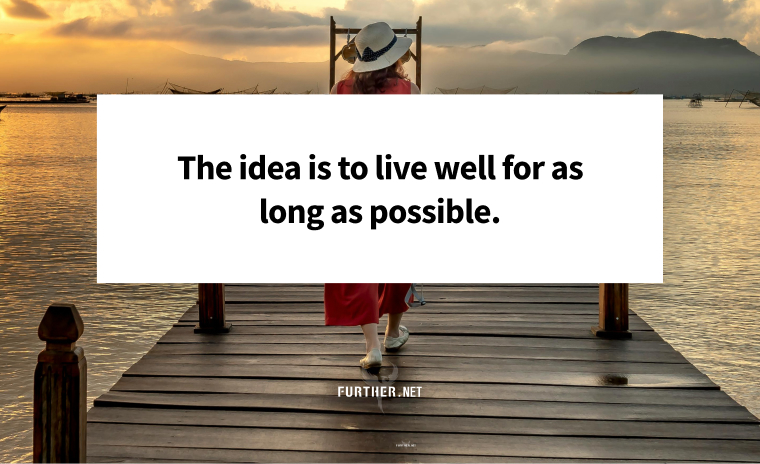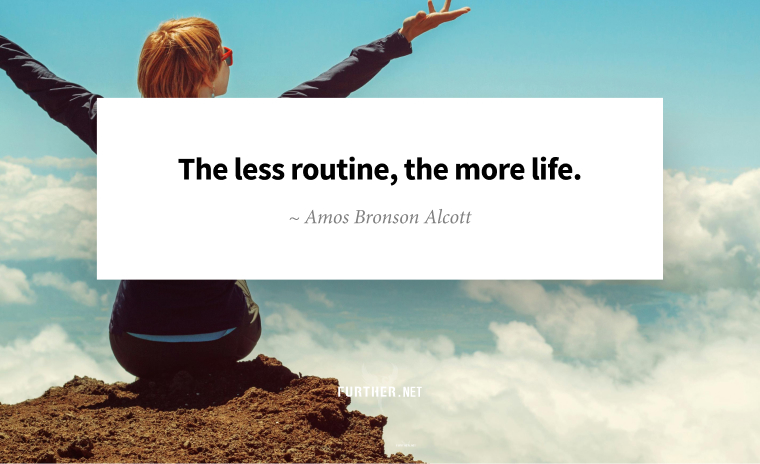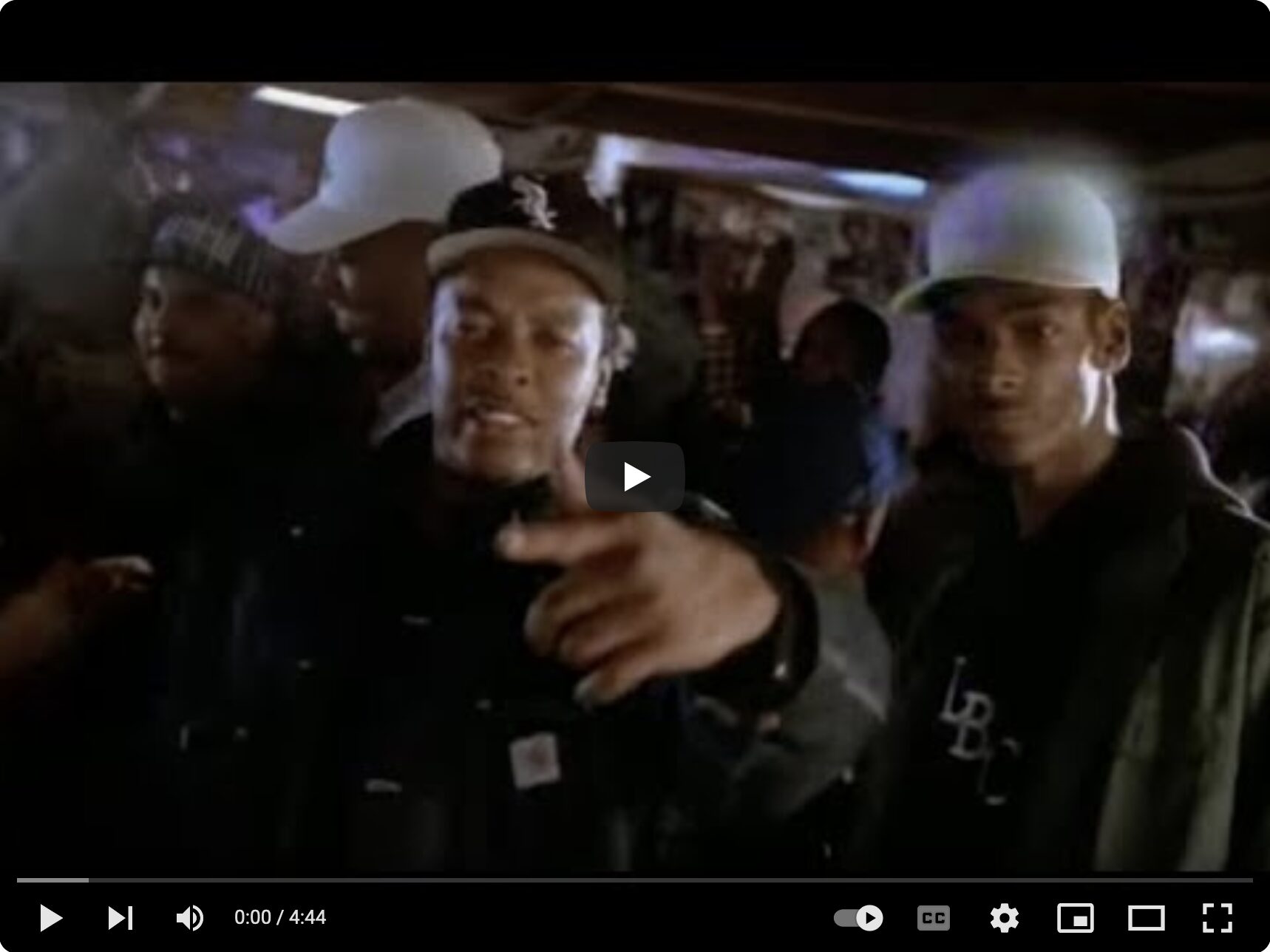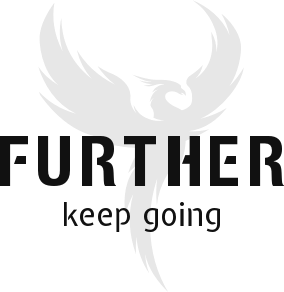The Art of Living Well 
I write about longevity quite a bit, both here and with other projects. Combine that with the fact that I lift weights and focus on fitness at 56, and I invariably get someone asking: What, you one of those people trying to live forever? No, actually. No matter how fit I am, I could still get run over by a bus tomorrow. I have no real control over how long I live, and making that the focus of my attention seems silly. But while I'm still here, I do want the experience of life to be as good as possible. And it turns out that working out adds significantly to how good I look and feel. Surprisingly, laying around eating and drinking whatever I want does not make me feel good, despite how easy it is. And I sure as hell don't look good with that approach, which makes me feel even worse. This is the whole idea behind choosing to focus on extending healthspan (or healthy life expectancy), and I'm not alone. 67% of Gen Xers say they'd rather be healthier than live a longer life. Paradoxically, choosing to maximize health tends to extend longevity as well - and yet, that's almost beside the point. You're not trying to live as long as possible. The idea is to live well for as long as possible. Without health, there is no living well. One thing the United States does well is keep you alive after 75 even when faced with debilitating illness, assuming you have access to healthcare. But the quality of your life may not be what you consider living. If you have your health, though, you're able to maximize your experience of life in multiple ways. Instead of being put out to pasture at 65, you may be just getting started in a new vibrant phase of life where you accomplish as much or more than when you were younger. This is just one of many reasons why the concept of retirement as we've known it just doesn't make sense. Longer healthspans require greater wealthspans, sure. But healthy aging also opens the door to the possibility that your best days truly are ahead of you, and that includes with your chosen work. Further reading: Most Americans Would Rather Feel 25% Healthier Than Live 25% Longer (Fortune) Keep going- Brian Clark P.S. New to Further? Join us here. Don't Trust the Process(ed) At a time when Americans consume more than half of their daily calories from ultra-processed foods, there is increasing evidence that eating too many of these foods can make us sick. From Anxiety to Cancer, the Evidence Against Ultra-Processed Food Piles Up (NPR) Battle of the Midlife Bulge Researchers at Nagoya University and their colleagues in Japan have discovered that obesity in middle age is due to age-related alterations in the form of neurons in the hypothalamus, the brain region responsible for regulating metabolism and appetite. Scientists Discover Hidden Biological Culprit Responsible for Middle-Aged Obesity (SciTech Daily) The Long Life Issue The "retirement crisis" boils down to the fact that people are living longer, even while the vast majority of people can't afford to live 30+ years without working. And most people don't retire because they have plenty of money; it's often due to illness or a layoff. This is a society-wide emerging issue, but for now we have to look after our own healthspan and wealthspan. Solving the Looming Retirement Crisis Means Thinking Differently About Aging, Economist Says (Business Insider) The Desire to Roam Freely I've been location-independent since 2006, and I don't ever want that to change. So I understand why people who got a taste of freedom during the pandemic are willing to take a pay cut, increase working hours, and give up vacation days to work remotely. But as long as you're traditionally employed, you'll never have the upper hand. And whatever you negotiate can be taken away. Half of Americans Would Take a Pay Cut to Work Remotely (BI) Rethinking Habits for Greater Joy and Purpose 
By Trudi Roth You've been around enough to know smart habits always beat ambitious goals. As a Further reader, you're also likely dedicated to ongoing self-improvement, which entails turning short-term challenges into long-term habits — like getting in shape, quitting addictions, or training your brain to make better choices. In other words, you strive to create good habits and break bad ones by taking tiny steps. But it may be time to blow up your "atomic habits" a bit. Like everything good for you, habits have a dark side. French existentialist Gabriel Marcel coined the term "crispation" for becoming stuck in routines and habituated behaviors. (Side note: "crispation" has my vote for a late edition to the Gen X lexicon, as in, "Dude, I'm in total crispation.") When your habits become shorthand for a rut, it's time to ditch your dependence on the known and start consciously exploring new directions. Routine Inspection All habits start the same way: relentless repetition. The problem is if you do something repeatedly to the point of effortlessness, what once was a conscious effort becomes mindless. According to neuroscientist Tali Sharot, author of Look Again: The Power of Noticing What Was Always There, this is a crucial mistake. If you've been with the same or a bunch of people or have been in the same place for a while, with the same policies and the same routines, it will be more difficult for them to see what are the things that we can do better, right? Because of habituation. This applies to all areas of life, personal and professional. As Sharot points out, the issue isn't with what you're doing; it's what you're not noticing and, thus, not doing because you're on autopilot. According to Sharot, the cure for crispation's stagnation has another snappy name: "dishabituation." It's essential for those of us in midlife, as we're the most likely to have deeply routinized behaviors, thanks to being on the same hamster wheel for decades. Dishabituation provides a sorely needed jolt of adventure and novelty, sparking joy and new possibilities. The Art of Dishabituation Generally speaking, there are two types of people in the world: explorers, who constantly seek new experiences, and exploiters, who stick with doing the things they know they're OK with. Sharot argues that most of us are too much on the exploiter side. So, the trick is to create more balance in handling your habits by adopting two practices: - Breaking: This means literally taking a break from your routines, so when you return to them, you'll have a newfound appreciation for your life.
- Changing: This is more lasting, as it means taking lasting action. For example, if you always work indoors, you can pivot to doing more tasks outside. Even small changes help unlock creativity and provide fresh inspiration.
In other words, if you're knee-deep in a crispation situation, try dishabituation — or better yet, make a habit of it! Trapped in routine? Here's how to "dishabituate" and rediscover joy (Big Think) further: flashback  Dr Dre - Nuthin' But A "G" Thang The Chronic, 1992 Nuthin' But A "G" Thang owes its G-funk vibe to a sample of "I Want'a Do Something Freaky to You" by Leon Haywood. But from there it's a young Snoop Dogg stealing the show; he even recorded his lyrics for the first version of the song on the phone from prison. According to Dre: "You can hear jail sounds in the back and everything, and he's '1, 2, 3 and to the 4....'" (YouTube) further: sharing Enjoy this issue? Please forward this email with friends or share on social media. Thank you for sharing Further! | 





No comments:
Post a Comment